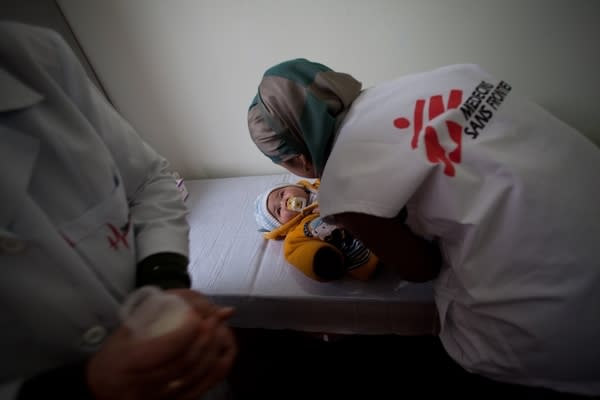Carrying the burden of drug-resistant tuberculosis

Kyrgyzstan has one of the highest burdens of drug-resistant tuberculosis (DR-TB) in the world, but treatment is hard to obtain. Severe budget constraints over past decades have resulted in a deterioration of health services in general.
Drug-resistance TB treatment takes up to two years which is difficult to complete. Two years is a long time and the treatment produces heavy side-effects.
It is expensive, and in Kyrgyzstan it is prescribed selectively, according to criteria set by the country’s DR-TB Consilium, because of a chronic shortage of drugs. In October 2011, a further decrease in supply led to the suspension of the initiation of DR-TB treatment.
"In February 2011, I felt bad, exhausted, had fever, dizziness. After many tests the doctors discovered TB. I was on treatment for six months, then they told me to go to Bishkek for treatment. I didn’t agree because I didn’t have the financial means. Nobody was working at home; we were living on my mother’s pension," says Mukhtar, 44 years old.
"I had other tests, and was told that I needed nine more months of treatment. But there was no free place, so I was told to go home," he continues.
In February 2012, Médecins Sans Frontières/Doctors Without Borders (MSF) began offering comprehensive, free medical care for people with DR-TB and people co-infected with both HIV and TB in the district of Kara Suu, Osh province. The rate of DR-TB is particularly high in this region, as is the number of patients waiting for treatment.
The programme is a model for decentralisation: staff screen for TB, DR-TB and HIV throughout the district. Those who are diagnosed then receive the drugs and medical care they need, as well as psychosocial support to encourage adherence.
"One day someone told me about the MSF project in Kara Suu district. I decided to go there. On 29 June I was hospitalised. Before hospitalisation I weighed 67 kg, but in hospital I reached 82 kg. I did more tests and the results were very good. On 14th September I moved to outpatient treatment, and I have since gained another 6 kg," says Mukhtar.
Most people are treated as outpatients and only the most seriously ill are admitted to hospital, like Mukhtar.
An MSF team is also working across the capital Bishkek’s detention system, screening inmates for TB. Those diagnosed with the disease are referred to the TB centre for detainees, where MSF provides treatment, counselling and social support.
Then, once they have returned to civilian life- some 30 percent are released while on treatment - TB patients require social support. Without it, continuing their treatment would become impossible. We go to a great deal of effort to find and organise follow up for TB sufferers released from jails. Aside from psychosocial support, we also offer nutritional support and assistance to ensure that they continue their treatment in public medical facilities.
by Remi Carrier, Executive Director of MSF Hong Kong

